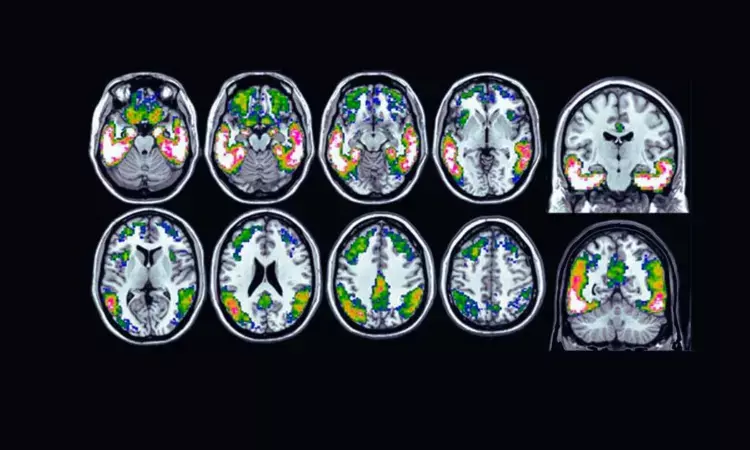- Home
- Medical news & Guidelines
- Anesthesiology
- Cardiology and CTVS
- Critical Care
- Dentistry
- Dermatology
- Diabetes and Endocrinology
- ENT
- Gastroenterology
- Medicine
- Nephrology
- Neurology
- Obstretics-Gynaecology
- Oncology
- Ophthalmology
- Orthopaedics
- Pediatrics-Neonatology
- Psychiatry
- Pulmonology
- Radiology
- Surgery
- Urology
- Laboratory Medicine
- Diet
- Nursing
- Paramedical
- Physiotherapy
- Health news
- Fact Check
- Bone Health Fact Check
- Brain Health Fact Check
- Cancer Related Fact Check
- Child Care Fact Check
- Dental and oral health fact check
- Diabetes and metabolic health fact check
- Diet and Nutrition Fact Check
- Eye and ENT Care Fact Check
- Fitness fact check
- Gut health fact check
- Heart health fact check
- Kidney health fact check
- Medical education fact check
- Men's health fact check
- Respiratory fact check
- Skin and hair care fact check
- Vaccine and Immunization fact check
- Women's health fact check
- AYUSH
- State News
- Andaman and Nicobar Islands
- Andhra Pradesh
- Arunachal Pradesh
- Assam
- Bihar
- Chandigarh
- Chattisgarh
- Dadra and Nagar Haveli
- Daman and Diu
- Delhi
- Goa
- Gujarat
- Haryana
- Himachal Pradesh
- Jammu & Kashmir
- Jharkhand
- Karnataka
- Kerala
- Ladakh
- Lakshadweep
- Madhya Pradesh
- Maharashtra
- Manipur
- Meghalaya
- Mizoram
- Nagaland
- Odisha
- Puducherry
- Punjab
- Rajasthan
- Sikkim
- Tamil Nadu
- Telangana
- Tripura
- Uttar Pradesh
- Uttrakhand
- West Bengal
- Medical Education
- Industry
Tau Positron Emission Tomography Breakthrough in Predicting Dementia in Mild Cognitive Impairment Patients: JAMA

Sweden: In a significant breakthrough in neuroimaging, researchers have uncovered a promising avenue for predicting dementia in individuals with mild cognitive impairment (MCI) using Tau Positron Emission Tomography (PET). This pioneering approach holds immense potential for early detection and intervention, offering hope for improved outcomes and personalized care in managing cognitive decline.
The findings, published in JAMA Neurology, suggest that quantitative tau PET and tau PET visual reads are promising as stand-alone prognostic markers for clinical progression to dementia among individuals with mild cognitive impairment, outperforming Aβ PET and MRI.
In the cohort study, positivity on quantitative tau PET, but not Aβ PET or MRI better predicted the conversion from MCI to all-cause dementia when added to a base model including sex, age, education, and Mini-Mental State Examination score, while quantitative tau PET, as well as tau PET visual, reads improved prediction of Alzheimer's disease (AD) dementia. The optimal set of neuroimaging biomarkers to predict all-cause and AD dementia included tau PET and MRI measures.
An accurate prognosis is especially pertinent in mild cognitive impairment when individuals experience considerable uncertainty about future progression. Considering this, Colin Groot, Lund University, Lund, Sweden, and colleagues aimed to evaluate the tau PET's predictive value to predict clinical progression from MCI to dementia.
For this purpose, the researchers conducted a multicenter cohort study with external validation and a mean follow-up of 2.0 years. Data was collected from centers in Switzerland, the US, Sweden, and South Korea from 2014 to 2024. Participant data were retrospectively collected, and inclusion criteria were a baseline MCI diagnosis; longitudinal clinical follow-up; a Mini-Mental State Examination (MMSE) score greater than 22; and available tau PET, amyloid-β (Aβ) PET, and MRI scan less than one year from diagnosis.
The study included 448 eligible individuals with MCI (331 in the discovery cohort and 117 in the validation cohort). None of these participants were excluded from the study.
Positive results on Aβ PET (global; expressed in the standardized metric Centiloids), tau PET (temporal meta–region of interest), and MRI (Alzheimer's disease [AD] signature region) were assessed using quantitative thresholds and visual reads. The primary outcomes were clinical progression from MCI to all-cause dementia or AD dementia. The primary analyses were receiver operating characteristics.
The following were the key findings of the study:
- In the discovery cohort, the mean age was 70.9 years, 58% were male, the mean MMSE score was 1.9, and 110 individuals with MCI converted to dementia (71 to AD dementia).
- Only the model with tau PET predicted all-cause dementia (area under the receiver operating characteristic curve [AUC], 0.75) better than a base model including age, sex, education, and MMSE score (AUC, 0.71), while the models assessing the other neuroimaging markers did not improve prediction.
- In the validation cohort, tau PET was replicated in predicting all-cause dementia. Compared to the base model (AUC, 0.75), the prediction of AD dementia in the discovery cohort was significantly improved by including tau PET (AUC, 0.84), tau PET visual read (AUC, 0.83), and Aβ PET Centiloids (AUC, 0.83).
- In the validation cohort, only the tau PET and the tau PET visual reads replicated in predicting AD dementia.
"Tau-PET showed the best performance as a stand-alone marker to predict progression to dementia among individuals with MCI, suggesting that for prognostic purposes in MCI, a tau PET scan may be the best currently available neuroimaging marker," the researchers wrote.
Reference:
Groot C, Smith R, Collij LE, et al. Tau Positron Emission Tomography for Predicting Dementia in Individuals With Mild Cognitive Impairment. JAMA Neurol. Published online June 10, 2024. doi:10.1001/jamaneurol.2024.1612
Dr Kamal Kant Kohli-MBBS, DTCD- a chest specialist with more than 30 years of practice and a flair for writing clinical articles, Dr Kamal Kant Kohli joined Medical Dialogues as a Chief Editor of Medical News. Besides writing articles, as an editor, he proofreads and verifies all the medical content published on Medical Dialogues including those coming from journals, studies,medical conferences,guidelines etc. Email: drkohli@medicaldialogues.in. Contact no. 011-43720751


